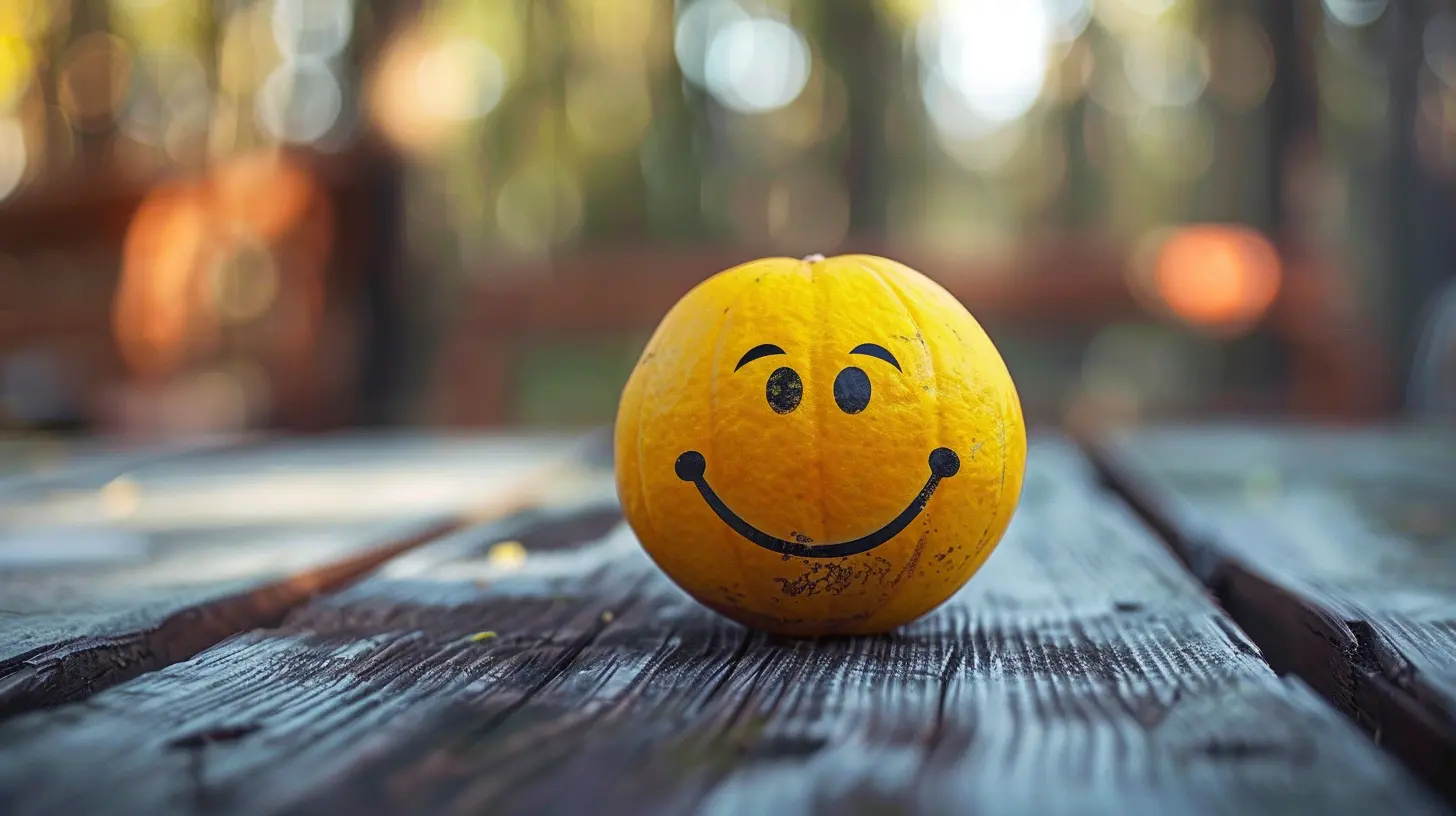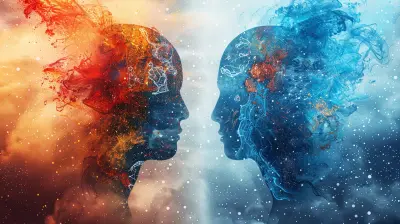The Psychology of Gratitude: How It Can Improve Your Life
26 May 2025
Gratitude—it’s a simple concept, right? We say "thank you" when someone holds the door open, we feel warm inside when a friend does something nice, and we appreciate a beautiful sunset. But what if I told you that gratitude is more than just being polite or feeling good in the moment? It’s actually a powerful psychological tool that can transform your life, improve your mental and physical health, and even strengthen your relationships.
Let’s dive deep into the psychology of gratitude and discover how practicing it daily can make you happier, healthier, and more fulfilled.

What Is Gratitude?
At its core, gratitude is the act of recognizing and appreciating the good in your life. It’s not just about saying "thank you" but truly feeling thankful for the people, experiences, and even challenges that shape you. Psychologists define gratitude as a positive emotional response to the kindness, generosity, or benefits received from others or life itself.Interestingly, gratitude isn’t just something we feel—it’s something we practice. And the more we practice it, the more it rewires our brain for positivity, resilience, and overall well-being.

The Science Behind Gratitude
How Gratitude Affects the Brain
Ever wonder why feeling grateful makes you happier? It’s not just a coincidence—it’s science. Gratitude activates specific areas of the brain, particularly the prefrontal cortex and the anterior cingulate cortex, which are associated with emotional regulation and happiness.When we express or experience gratitude, our brain releases dopamine and serotonin, two neurotransmitters responsible for feelings of happiness and relaxation. Think of them as your brain’s natural mood boosters. The more we practice gratitude, the more these "happiness chemicals" flow, making us feel good in both the short and long term.
Gratitude and Neural Plasticity
Neuroplasticity is the brain’s ability to adapt and rewire itself. When we regularly focus on gratitude, our brain starts to form new neural pathways that make it easier for us to see the positive side of life. Essentially, the more we actively practice gratitude, the more our brain gets trained to be optimistic and resilient.
The Psychological Benefits of Gratitude
1. Boosts Happiness and Life Satisfaction
Gratitude has been scientifically linked to higher levels of happiness and overall life satisfaction. When you focus on what you have rather than what you lack, you naturally feel more content. It shifts your mindset from scarcity to abundance, making life feel richer and more fulfilling.2. Reduces Stress and Anxiety
Stress and anxiety often stem from overthinking and focusing on what’s going wrong. Gratitude redirects your attention to what’s going right. Studies have shown that people who regularly practice gratitude experience lower cortisol levels (the stress hormone), helping them feel calmer and more at ease.3. Improves Mental Health
Gratitude plays a significant role in reducing symptoms of depression. By focusing on the positive aspects of life, individuals who practice gratitude often experience fewer negative thoughts and greater emotional stability. In fact, some therapists even recommend gratitude journaling as a complementary treatment for depression and anxiety.4. Enhances Resilience
Life isn’t always easy—we all face setbacks and struggles. But gratitude helps us develop resilience, allowing us to navigate life’s challenges with a more positive outlook. When we acknowledge the good even in tough situations, we strengthen our ability to bounce back from adversity.
The Physical Benefits of Gratitude
It’s not just your mind that benefits from gratitude—your body does too!1. Better Sleep
Ever toss and turn at night because your mind is racing with worries? Practicing gratitude before bed can help quiet your thoughts and promote better sleep. Studies show that grateful individuals tend to sleep longer, fall asleep faster, and wake up feeling more refreshed.2. Strengthens the Immune System
Believe it or not, gratitude can even boost your immune system. Research suggests that grateful people have lower levels of inflammation and healthier heart rates, making them less susceptible to illness.3. Lowers Blood Pressure
Expressing gratitude has been linked to lower blood pressure and better heart health. By reducing stress and promoting relaxation, gratitude helps keep your cardiovascular system in check.How Gratitude Improves Relationships
Gratitude isn’t just beneficial for your personal well-being—it also strengthens your relationships.1. Fosters Stronger Connections
When you express gratitude toward others, they feel valued and appreciated. This deepens your bonds and encourages more positive interactions. Whether it’s a simple "thank you" to your partner or a heartfelt note to a friend, small gestures of gratitude go a long way.2. Enhances Empathy and Reduces Aggression
Grateful people tend to be more empathetic and less likely to retaliate with aggression. Studies show that gratitude fosters understanding and reduces negative emotions, making interpersonal conflicts easier to navigate.3. Encourages a Cycle of Kindness
Gratitude is contagious. When you show appreciation to someone, they’re more likely to do something kind for someone else. This creates a ripple effect of positivity that strengthens communities and personal relationships.
Simple Ways to Practice Gratitude Daily
So, how can you incorporate gratitude into your daily life? Here are a few simple yet powerful ways:1. Keep a Gratitude Journal
Write down three things you’re grateful for every day. They don’t have to be big—small moments like enjoying a good cup of coffee or receiving a smile from a stranger count too!2. Express Gratitude to Others
Take a moment to let the people in your life know you appreciate them. Send a text, write a note, or simply say "thank you" with genuine sincerity.3. Practice Mindful Gratitude
Pause throughout the day to acknowledge the good around you. Instead of rushing through life, take a few seconds to appreciate nature, your loved ones, or even your breath.4. Use Gratitude Affirmations
Start your day with positive affirmations like, "I am grateful for the love and support in my life" or "Today, I choose to see the positives in every situation."5. Reframe Challenges as Lessons
Even tough times have silver linings. When facing difficulties, try to find something to be grateful for—whether it’s a lesson learned, personal growth, or newfound strength.Final Thoughts
Gratitude is more than just a feel-good emotion; it’s a life-changing mindset. By embracing gratitude, you can rewire your brain for happiness, improve your mental and physical health, and build stronger relationships. The best part? It’s free, takes only a few minutes a day, and has a ripple effect that can transform not just your life, but the lives of those around you.So, why not start today? Take a deep breath, reflect on something good, and say "thank you." Your mind, body, and soul will thank you for it.
all images in this post were generated using AI tools
Category:
Self ImprovementAuthor:

Nina Reilly
Discussion
rate this article
2 comments
Tyler McQuade
Thank you for this insightful article on the psychology of gratitude. It's fascinating to see how cultivating gratitude can enhance our well-being and relationships. I look forward to applying these concepts in my daily life!
June 13, 2025 at 4:51 AM

Nina Reilly
Thank you for your kind words! I'm glad you found the article insightful and hope you enjoy incorporating gratitude into your daily life!
Paxton McAndrews
Gratitude positively impacts mental health, enhances well-being, and fosters stronger relationships. Incorporating daily gratitude practices can lead to a more fulfilling, joyful life.
June 1, 2025 at 2:24 PM

Nina Reilly
Thank you for your insightful comment! I completely agree that gratitude is a powerful tool for enhancing mental health and fostering deeper connections.


